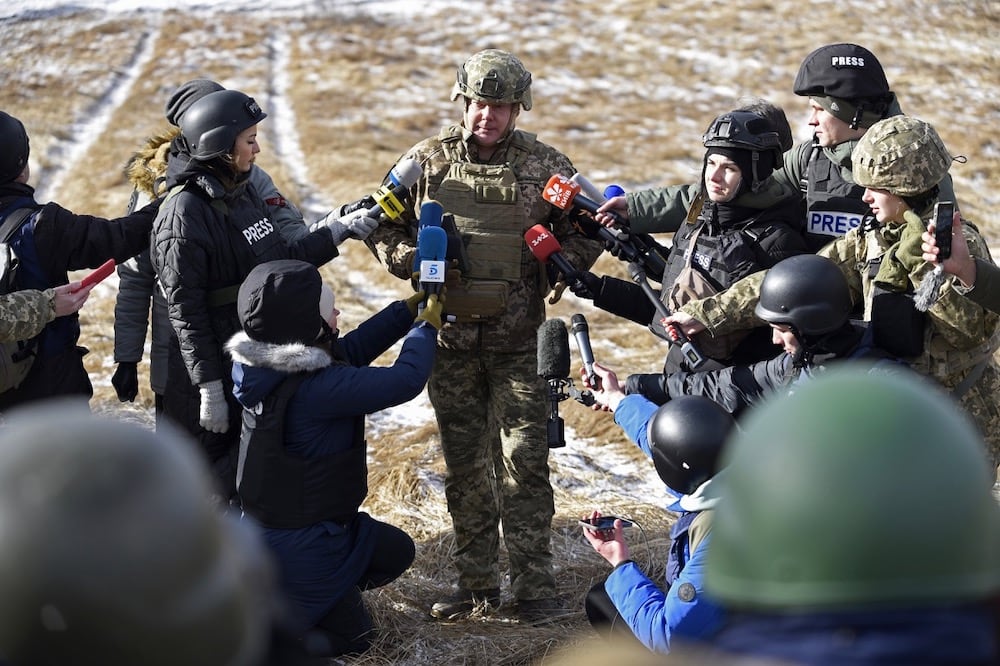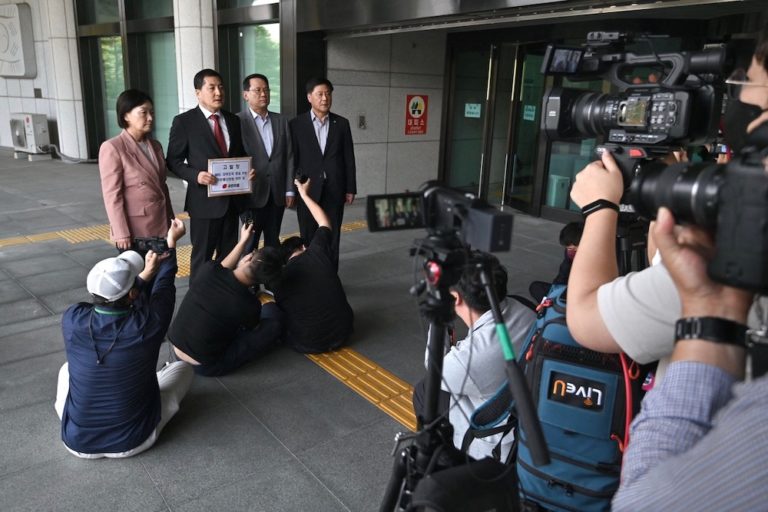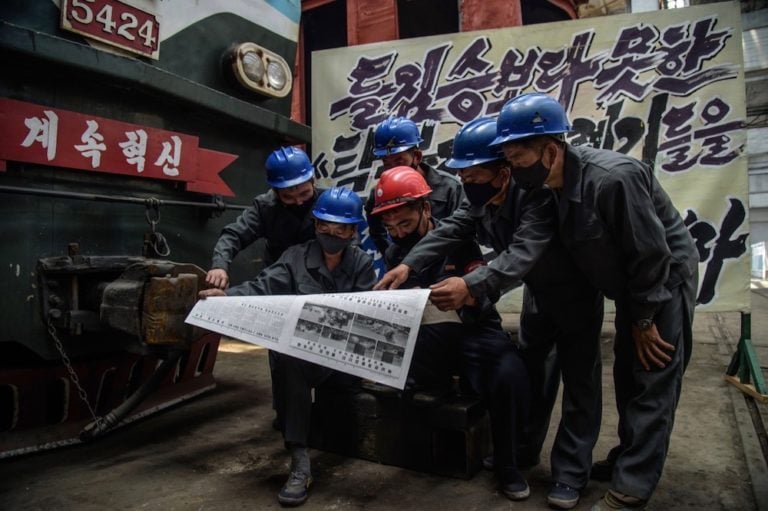Photojournalist Jang Jin-young faces criminal charges and was fined for traveling to report on Russia's full-scale invasion of Ukraine.
This statement was originally published on ipi.media on 22 June 2023.
Call comes after photojournalist fined for travelling to report on the war in Ukraine
The IPI global network urges the South Korean government to drop all restrictions on journalists reporting in conflict zones around the world. We express our solidarity with photojournalist Jang Jin-young, who faces criminal charges and who was fined for traveling to report on Russia’s full-scale invasion of Ukraine. We call on the South Korean government to drop all charges against Jin-young and cease its use of the provisions in the country’s Passport Act to limit the ability of the country’s journalists to travel abroad to cover conflicts.
Jin-young traveled to Poland on March 5, 2022 in order to report on the war in Ukraine, as well as to the front lines, according to the People’s Coalition for Media Reform. Just over one month later, he was accused of violations of the Passport Act and, in March 2023, fined KRW 5 million (approx. EUR 3,500). He plans to file an appeal later this month.
Article 17 of the Passport Act allows the government to suspend visits by any South Korean national to foreign states in order to protect “the lives, physical safety and property of people against dangerous circumstances in locations overseas.”
The law, however, has been used as a de-facto permission system that requires Korean nationals who are journalists to seek authorization to travel abroad to cover conflict zones around the world. According to reports, it is the only country in the world to maintain such a permission system for reporters in conflict zones. Reporters can now face harsh penalties for important reporting on conflicts around the world without prior permission.
This system has limited the coverage of Russia’s full-scale invasion of Ukraine by South Korean reporters. According to reports, only employees of accredited media outlets were authorized to travel to Ukraine and only for three days.
“In a free, democratic country like South Korea, there should be no criminal punishment for journalistic activities that do not harm the rights of others or the public interest,” Jiwon Son of OpenNet Korea told IPI.
“South Korea should immediately drop this arcane permit system that prevents journalists in their country from exercising their rights to freely travel to conflict zones to cover issues of public importance,” IPI Director of Advocacy Amy Brouillette said. “The South Korean public has the right to information on these global topics, and South Korean journalists should not face punishment for doing their job of covering them.”



